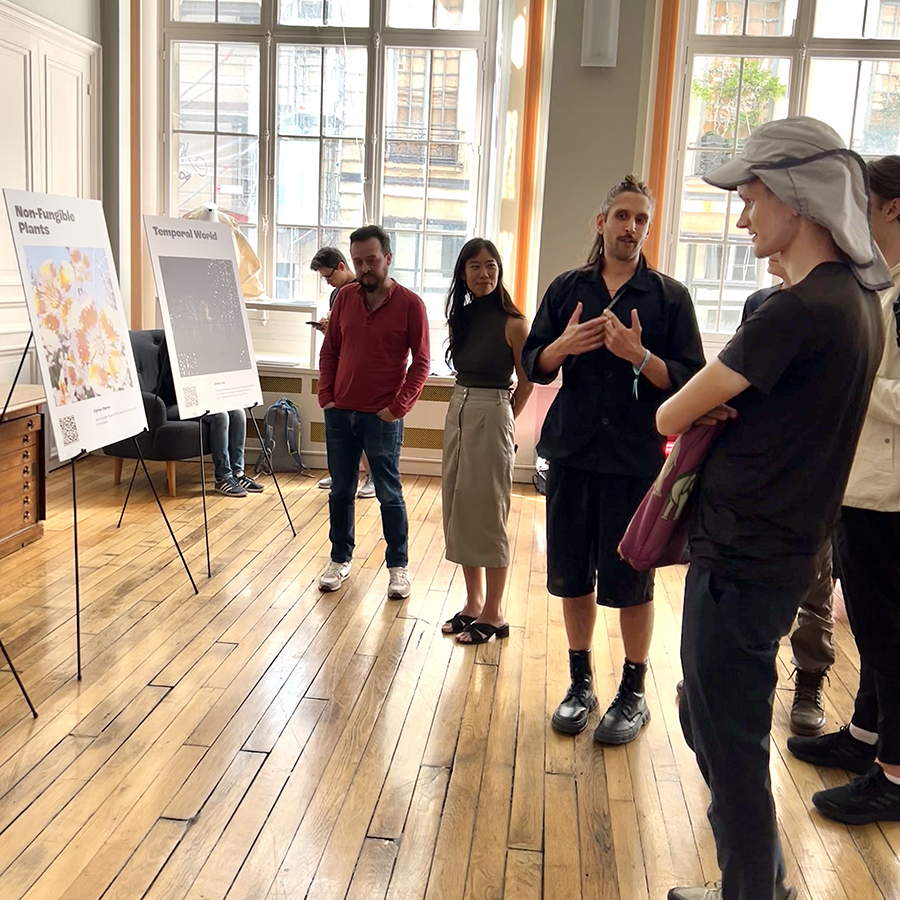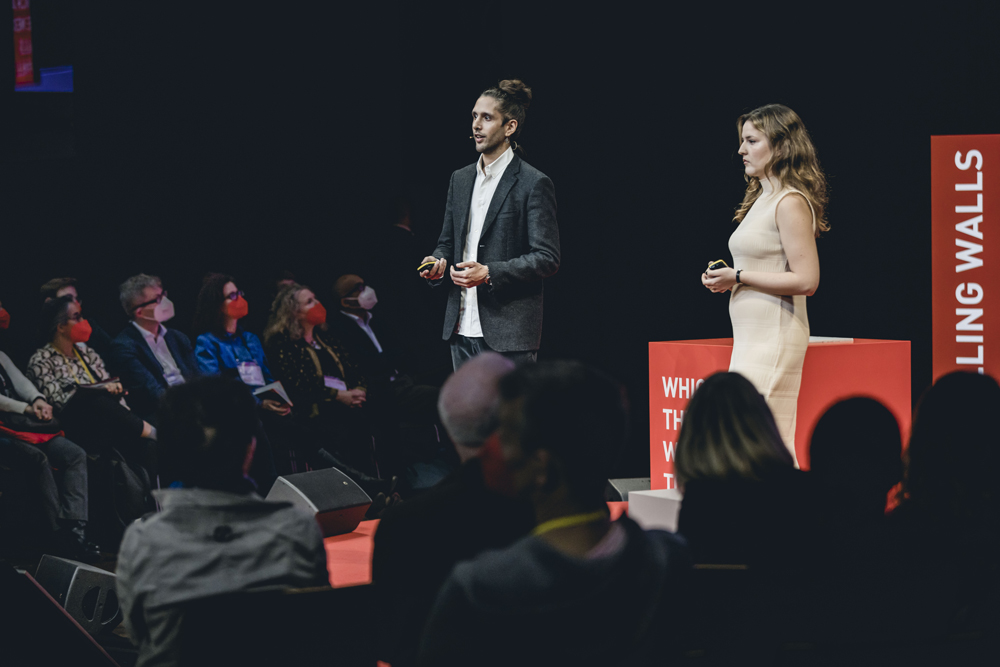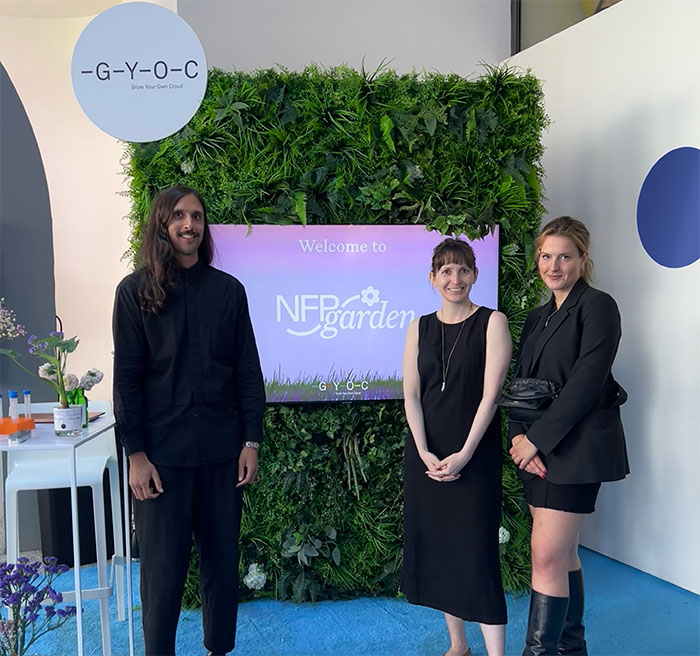$429.55 crowdfunded from 279 people
$2,359.74 received from matching pools
Non-Fungible Plants (NFPs) store NFTs in the DNA of real plants 🌱
This climate-solutions project is based on cutting edge biotechnology, taking digital NFTs and converting them into a biological format to create NFPs: a new format for data storage that is literally carbon absorbing.
The goal of this grant is to raise funds to support the technical costs of developing this experimental project at the intersection of DeSci and ReFi.
The long-term vision is to create a public good for regenerative data storage.
What are NFPs?
NFPs are real plants which store NFTs in their DNA. To do this we use DNA data storage technology to provide a clean and natural way to store digital files in harmony with nature.
Today, we’re demonstrating the amazing potential of this tech through an experimental project storing NFTs in the first generation of NFPs.

Why store data in this way?
DNA is the most dense format for data storage yet discovered - petabytes of data could be stored in a single gram of DNA without emitting any CO2. Any type of digital data can be stored in DNA in a format that never goes obsolete and can survive millions of years.
Since DNA is compatible with organisms like plants and trees, this means we could even grow organisms that can store data and remediate carbon.
Today we can only store a very small amount of data in this format, which makes NFTs a great candidate for early experimentation.
But how do you store data in a plant?
We start with a digital file (like a JPEG) and convert the digital data (0s and 1s) into the language of DNA (A, T, C, G). Next we use proprietary processes to safely transfer digital files into plant genomes.
It works! We can store any type of digital file in plants. We've even figured out how to retrieve the data.

You can learn more about how this works on the Netflix show 'The Future of' where our work is featured.
What kinds of data will you store in an NFP?
We're starting out with NFTs, creating an organic and carbon negative backup of the artwork and data that would normally exist on-chain and in the cloud.
For the first generation we will be creating a collective piece involving the wallet addresses of all contributors to the project to form an artwork that will be stored in the first-ever NFP.
Is there any risk to the NFT / NFT Owner?
We are creating a 'biological backup' of an NFT. This does not involve accessing private keys to NFTs or present any risk to NFT owners.
Our goal is to work with creators and developers who would like to collaborate on a novel artistic and technical experiments with our concept.
If you are a creator or developer and would like to collaborate please reach out to cyrus@growyourown.cloud
Is this safe for the plant?
Yes! The data is stored in a way that doesn't affect the plant or its interactions with other organisms.
The data stored in an NFP is a tiny fraction of the overall size of the plant's genome. All this means NFPs grow, live and reproduce as normal.
Who's behind this?
NFPs are developed by Grow Your Own Cloud: an award-winning research organization dedicated to developing a truly green future for data.
We combine art with science, and believe that working with nature as a technology is vital to help regenerate the environment. Our work has been featured in Wired, Netflix and awarded science breakthrough of the year 2022 by Falling Walls.

What will the funds be used for?
-
Technical processes: Conversion of digital data to DNA, DNA Synthesis.
-
Synthetic biology: Creation of plant vectors, growth of generations of NFPs.
-
Development costs: Website dev, Smart contract dev, audits.
-
Exhibition and presentation: The display of NFPs to showcase and educate the public on this futuristic climate solution.
What does this lead to?
NFPs are our way of bringing a vision for a truly regenerative internet to life. Through initiatives like NFPs, we are growing a link between the worlds of Web3 and WebTree🌳.
You can support this vision by supporting our Gitcoin grant to help us develop this experimental project grow into a regenerative public good:
Today - NFPs: using DNA data storage technology to cleanly archive single files
Tomorrow - Digital Gardens: storing GBs of data as part of a clean data ecosystem
Future - Data Forests: storing TBs and Petabytes of data while capturing tonnes of CO2
Thank You 🌱

NFP (Non-Fungible Plants) History
-
accepted into Climate Round 1 year ago. 144 people contributed $288 to the project, and $1,232 of match funding was provided.
-
accepted into Climate Solutions Round 1 year ago. 135 people contributed $141 to the project, and $1,127 of match funding was provided.





